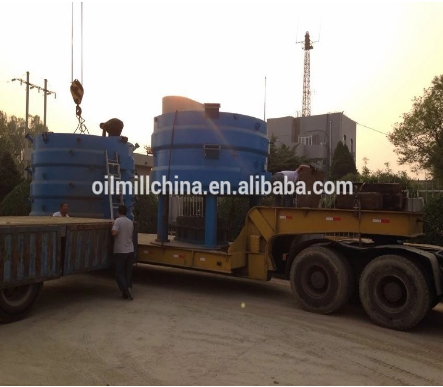Dàmh . 18, 2024 09:26 Back to list
Refined Rapeseed Oil Production Process and Unit Metrics
The Process and Significance of Refined Rapeseed Oil Production
Refined rapeseed oil, also known as canola oil, is one of the most widely used vegetable oils in the world. Its popularity is driven by its favorable fatty acid profile, neutral flavor, and versatility in various culinary applications. This article delves into the production process of refined rapeseed oil, its health benefits, and its significance in the global market.
The Production Process
The production of refined rapeseed oil involves several key steps seed harvesting, extraction, refining, and packaging. Each stage is designed to ensure that the final product is pure, safe, and suitable for consumer use.
1. Seed Harvesting The process begins with the harvesting of rapeseed (or canola) plants, cultivated primarily in temperate regions. These seeds contain about 40% oil by weight, making them a lucrative crop for farmers. The timing of the harvest is crucial, as mature seeds yield higher oil content.
2. Extraction Once harvested, the seeds undergo a cleaning process to remove impurities such as dirt and plant debris. The next step is oil extraction, which can be accomplished through mechanical pressing or solvent extraction. In mechanical pressing, seeds are crushed in a screw press, releasing the oil. Solvent extraction, on the other hand, employs a chemical solvent, typically hexane, to dissolve the oil from the seeds. This method results in higher oil yields but requires subsequent removal of the solvent.
3. Refining The extracted crude rapeseed oil contains impurities like free fatty acids, pigments, and other unwanted substances. Therefore, refining is essential to enhance the oil’s quality and shelf life. The refining process generally involves several steps degumming, neutralization, bleaching, and deodorization.
- Degumming The oil is treated with water or an acid to remove phospholipids, which can cause cloudiness. - Neutralization Here, the free fatty acids are neutralized with an alkali solution, producing soap that is then separated from the oil. - Bleaching This step removes pigments through the use of clay or activated carbon, resulting in a lighter-colored oil. - Deodorization In this final refining stage, the oil is heated under vacuum to eliminate volatile compounds that impart undesirable odors and flavors, producing a mild-flavored oil.
4. Packaging The refined rapeseed oil is then filtered, packaged in food-grade containers, and labeled for distribution. The packaging is crucial in preserving the oil’s quality and protecting it from light and air, which can lead to rancidity.
rapeseed oil refined unit product

Health Benefits
Refined rapeseed oil offers several health benefits contributing to its growing popularity among consumers. Its composition is characterized by low saturated fat levels and high monounsaturated and polyunsaturated fats, making it heart-healthy. It is also rich in omega-3 fatty acids, which play a vital role in reducing inflammation and promoting cardiovascular health.
Additionally, vitamin E, an antioxidant present in rapeseed oil, helps protect cells from oxidative damage. Its mild flavor and high smoke point make it an ideal choice for various cooking methods, including frying, baking, and sautéing, while adding minimal flavor to dishes.
Global Significance
The economic importance of refined rapeseed oil extends beyond health. As one of the leading vegetable oils globally, its production supports agricultural economies, particularly in Canada, China, and the European Union. The increasing demand for plant-based oils, driven by health trends and dietary choices, has further boosted the rapeseed oil market.
In addition, the oil's applications extend beyond the kitchen. It is used in the production of margarine, salad dressings, and even in industrial applications such as biodiesel and lubricants. This versatility highlights the oil's significance in multiple sectors, contributing to its steady growth in the global market.
Conclusion
Refined rapeseed oil is a product born from a meticulous production process that emphasizes quality and health. As consumers increasingly seek healthy cooking oils, refined rapeseed oil stands out for its nutritional benefits, neutral flavor, and versatility. Its role in the agricultural economy and various industries underscores its significance, making it a staple in households worldwide. As the market continues to evolve, refined rapeseed oil's prospects appear promising, cementing its position as a vital component of the global food supply chain.
-
High-Efficiency Peanut Oil Refined Machine for Quality Oil Production Leading Exporters & Companies
NewsJul.08,2025
-
High Efficiency Sunflower Seed Oil Press – Leading Cooking Oil Press Machine Factories & Suppliers
NewsJul.08,2025
-
High-Efficiency Soybean Oil Press Machine – Leading Exporters & Reliable Companies
NewsJul.07,2025
-
High-Efficiency Seed to Oil Extractor – Reliable Extraction Machinery for Your Business
NewsJul.07,2025
-
High-Quality Pressing Screw of Oil Expeller for Efficient Oil Extraction Leading Exporters & Manufacturers
NewsJul.06,2025
-
High-Efficiency Essential Oil Extraction Machine Trusted Exporters & Companies
NewsJul.06,2025
